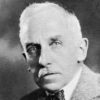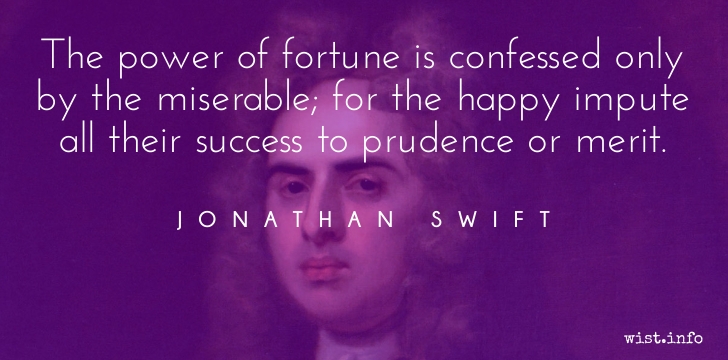The head never rules the heart, but just becomes its partner in crime.
Mignon McLaughlin (1913-1983) American journalist and author
The Second Neurotic’s Notebook, ch. 5 (1966)
(Source)
Quotations about:
self-justification
Note not all quotations have been tagged, so Search may find additional quotes on this topic.
Evil when we are in its power is not felt as evil but as a necessity, or even a duty.
People may see hypocrisy and cynicism all around them, but in my experience, almost without exception, they believe their own views and actions — even when contradictory, even when private motivations differ from public explanations — are righteous and principled.
John F. Harris (b. c. 1963) American political journalist, editor
“‘He Is Our O.J.'” Politico (9 Jan 2020)
(Source)
The kitten has a luxurious, Bohemian, unpuritanical nature. It eats six meals a day, plays furiously with a toy mouse and a piece of rope, and suddenly falls into a deep sleep whenever the fit takes it. It never feels the necessity to do anything to justify its existence; it does not want to be a Good Citizen; it has never heard of Service. It knows that it is beautiful and delightful, and it considers that a sufficient contribution to the general good. And in return for its beauty and charm it expects fish, meat, and vegetables, a comfortable bed, a chair by the grate fire, and endless petting.
Robertson Davies (1913-1995) Canadian author, editor, publisher
The Diary of Samuel Marchbanks, ch. 20 (1947)
(Source)
Macbeth’s self-justifications were feeble — and his conscience devoured him. Yes, even Iago was a little lamb, too. The imagination and spiritual strength of Shakespeare’s evildoers stopped short at a dozen corpses. Because they had no ideology.
Ideology — that is what gives evildoing its long-sought justification and gives the evildoer the necessary steadfastness and determination. That is the social theory which helps to make his acts seem good instead of bad in his own and others’ eyes, so that he won’t hear reproaches and curses but will receive praise and honors. That was how the agents of the Inquisition fortified their wills: by invoking Christianity; the conquerors of foreign lands, by extolling the grandeur of their Motherland; the colonizers, by civilization; the Nazis, by race; and the Jacobins (early and late), by equality, brotherhood, and the happiness of future generations.
Alexander Solzhenitsen (1918-2008) Russian novelist, emigre [Aleksandr Isayevich Solzhenitsyn]
The Gulag Archipelago, Vol. 1, Part 1, ch. 4 (1973) [tr. Whitney]
(Source)
In their moral justification, the argument of the lesser evil has played a prominent role. If you are confronted with two evils, thus the argument runs, it is your duty to opt for the lesser one, whereas it is irresponsible to refuse to choose altogether. […] Politically, the weakness of the argument has always been that those who choose the lesser evil forget very quickly that they chose evil.
Hannah Arendt (1906-1975) German-American philosopher, political theorist
“Personal Responsibility Under Dictatorship” (1964)
(Source)
Someone who sees himself as a victim will almost never morally evaluate himself or put limits on his own actions. Why should he? He is the victim.
Thomas Friedman (b. 1953) American journalist, columnist, author
From Beirut to Jerusalem, ch. 6 (1989)
(Source)
Few of us take the pains to study the origin of our cherished convictions; indeed, we have a natural repugnance to so doing. We like to continue to believe what we have been accustomed to accept as true, and the resentment aroused when doubt is cast upon any of our assumptions leads us to seek every manner of excuse for clinging to them. The result is that most of our so-called reasoning consists in finding arguments for going on believing as we already do.
James Harvey Robinson (1863-1936) American historian and educator
The Mind in the Making, ch. 4 “Rationalizing” (1921)
(Source)
For the Bolsheviki the end to be achieved was the Communist State, or the so-called Dictatorship of the Proletariat. Everything which advanced that end was justifiable and revolutionary. The Lenins, Radeks, and Zorins were therefore quite consistent. Obsessed by the infallibility of their creed, giving of themselves to the fullest, they could be both heroic and despicable at the same time. They could work twenty hours a day, live on herring and tea, and order the slaughter of innocent men and women. Occasionally they sought to mask their killings by pretending a “misunderstanding,” for doesn’t the end justify all means? They could employ torture and deny the inquisition, they could lie and defame, and call themselves idealists. In short, they could make themselves and others believe that everything was legitimate and right from the revolutionary viewpoint; any other policy was weak, sentimental, or a betrayal of the Revolution.
Emma Goldman (1869-1940) Lithuanian-American anarchist, activist
My Disillusionment in Russia, ch. 12 (1920)
(Source)
That which we call sin in others, is experiment for us.
Ralph Waldo Emerson (1803-1882) American essayist, lecturer, poet
“Experience,” Essays: Second Series (1844)
(Source)
The power of fortune is confessed only by the miserable; for the happy impute all their success to prudence or merit.
Jonathan Swift (1667-1745) English writer and churchman
“Thoughts on Various Subjects” (1706)
(Source)
The more lies are told, the more important it becomes for the liars to justify themselves by deep moral commitments to high-sounding objectives that mask the pursuit of money and power.
I fear one lies more to one’s self than to anyone else.
Propaganda thus serves more to justify ourselves than to convince others; and the more reason we have to feel guilty, the more fervent our propaganda.
Eric Hoffer (1902-1983) American writer, philosopher, longshoreman
True Believer: Thoughts on the Nature of Mass Movements, Part 3, ch. 14, § 84 (1951)
(Source)















